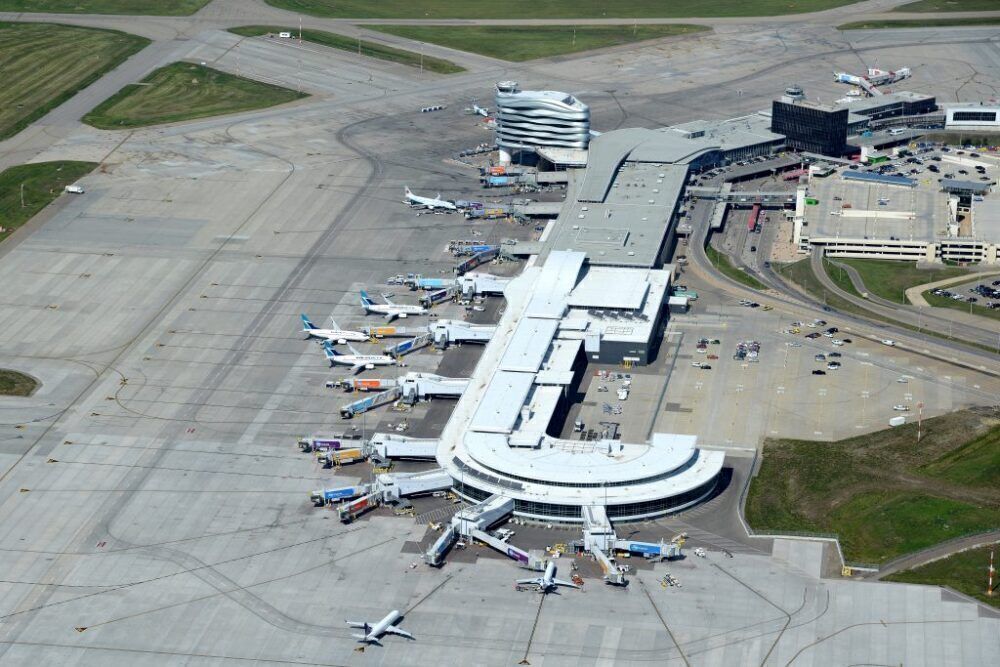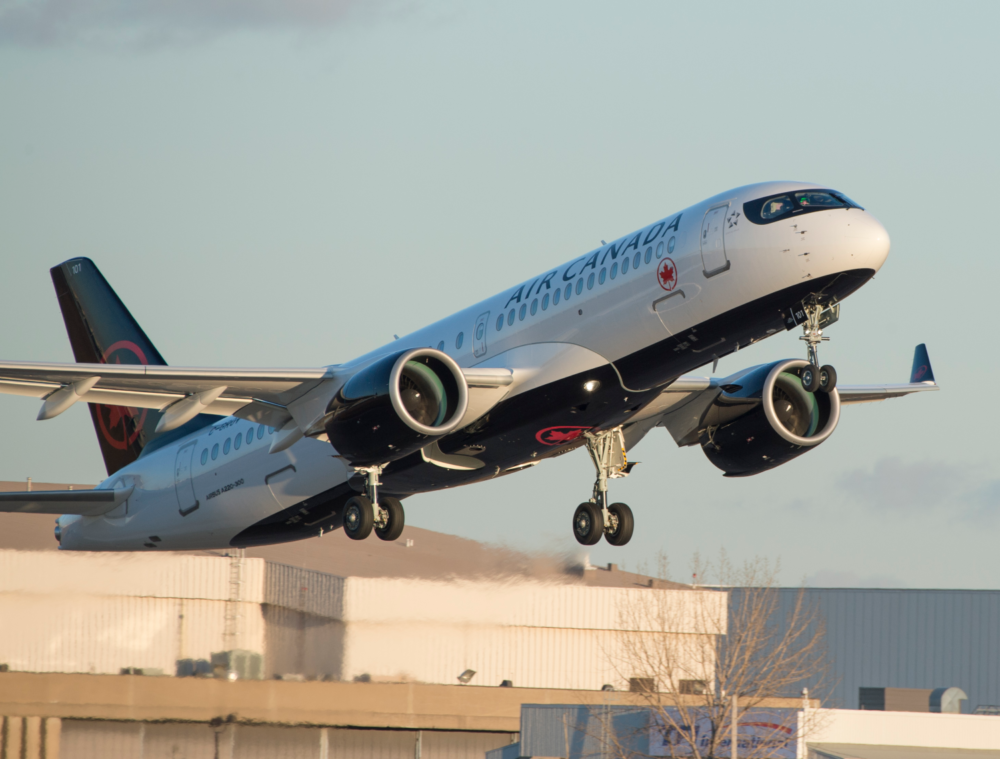Air Canada has teamed up with Edmonton Airport to reduce carbon emissions and work towards a green and sustainable aviation sector. The freshly signed sustainability partnership agreement aims to reduce the carbon impact of air travel. Both Air Canada and Edmonton Airport are working towards a net-zero future.
"Air Canada is passionate about reducing its environmental impact, and our partnership shows how airlines and airports can work together to promote a sustainable future," says Edmonton Airport's Myron Keehn in a statement. "This is only the beginning as we know that there are tremendous opportunities to lead in both an environmentally and economically sustainable way."
Stay informed: Sign up for our daily and weekly aviation news digests.
Percentages understate aviation's oversized environmental impact
Overall, the airline industry accounts for 2.5% of global carbon dioxide emissions. The industry also accounts for 1.9% of all greenhouse gas emissions. But these seemingly low numbers understate the impact of the airline industry on climate change. Along with many other businesses in the aviation sector, Air Canada and Edmonton Airport are working to reduce that impact.
Air Canada is Canada's biggest and best-known airline. The airline's 161 planes normally fly to all corners of Canada and across the globe from its hub airports. Air Canada has long acknowledged the impact of air travel on the environment.
The airline has committed to net zero emissions from all its global operations by 2050. The Montreal-based airline has pledged to reduce its greenhouse gas emissions from flights by 20% by 2030 and ground operations by 30% compared to a 2019 baseline.
The agreement between Air Canada and Edmonton Airport will see both the airline and airport working together to test emerging green technologies. In raw passenger numbers, Edmonton is Canada's 5th busiest airport. The airport is also a significant Air Canada port.
Edmonton airport handled 8.2 million passengers in 2018. It is an important hub for northern Canada, with scheduled non-stop flights to multiple destinations across Canada’s Arctic territories. Before the travel downturn, Edmonton Airport provided non-stop connections to around 60 Canadian, US and international destinations.
The agreement focuses on initiatives to promote a cleaner environment
Edmonton Airport is the first and remains the only airport globally to sign The Climate Pledge. As part of that pledge, the airport is committing to be carbon neutral by 2040. The Sustainability Partnership between Edmonton Airport and Air Canada will focus on initiatives that will promote a cleaner environment. That includes working on the electrification of aviation equipment.
Also on the radar are hydrogen fuel cell technologies, green power generation using solar energy, the world's largest airport-based solar farm, development and usage of sustainable aviation fuels, biofuels and hydrogen, replacement of single-use plastics with plant-fibre materials, drones for e-commerce and cargo delivery, and other initiatives in industries such as agriculture and forestry to offset carbon emissions.
"This partnership with Edmonton Airports is an important step towards our midterm 2030 objectives that roll up into our overall net-zero by 2050 emissions goal," said Air Canada's Samuel Elfassy. "We look forward to working together in developing innovative, long term, sustainable airport and ground operations emission reductions that could potentially be scaled at other airports in Canada and internationally."
Economic as well as environmental benefits
Both Air Canada and Edmonton Airport point out this agreement has significant economic benefits in addition to boosting their environmental credentials. They argue the outcomes from the agreement will create highly skilled jobs, stimulate economic development, and help attract more investment in the field.
In Edmonton, the airport is a major employer. The airport supports over 26,000 jobs and generating an economic output of over C$3.2 billion (US$2.65 billion). The northern Canadian city and capital of Alberta is eyeing a greener future economy. The new sustainability partnership between the Transport Canada owned airport and Air Canada is a step in that direction.



